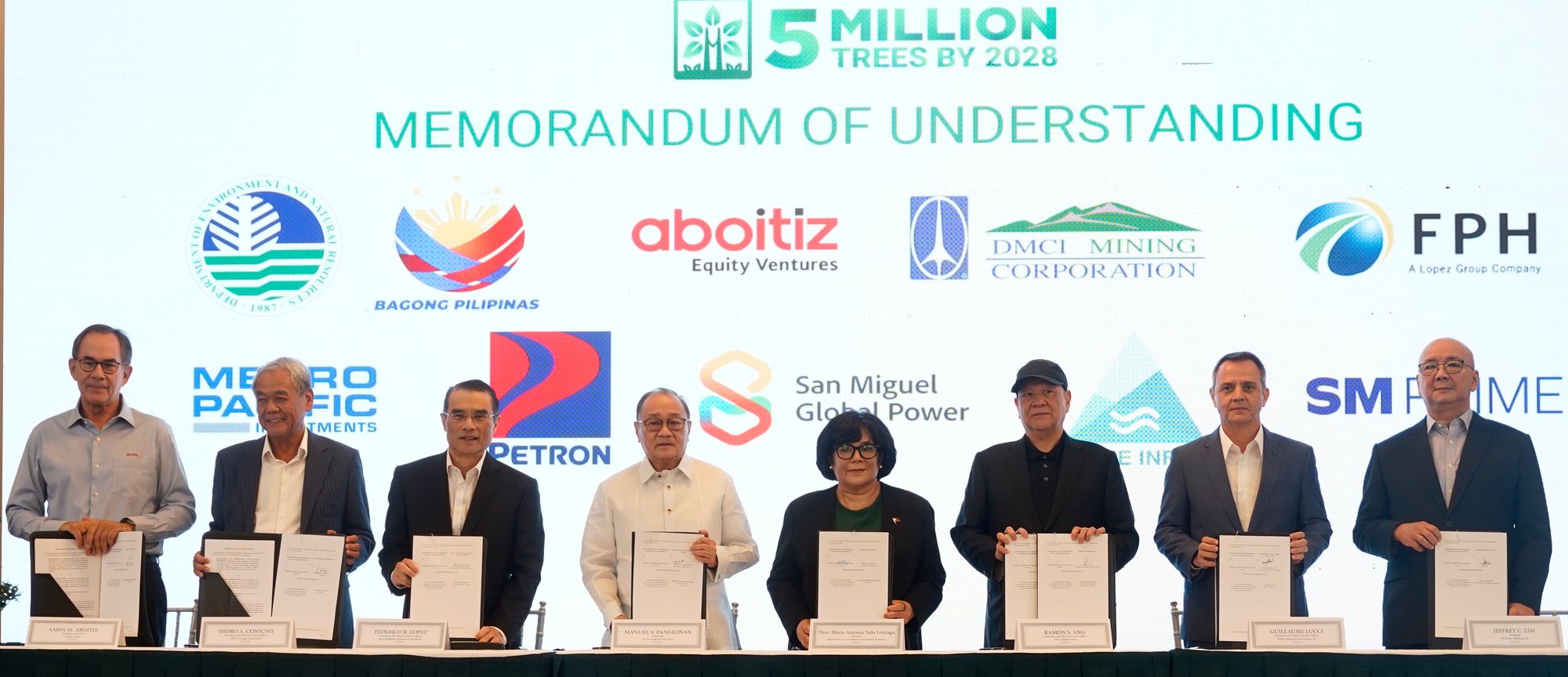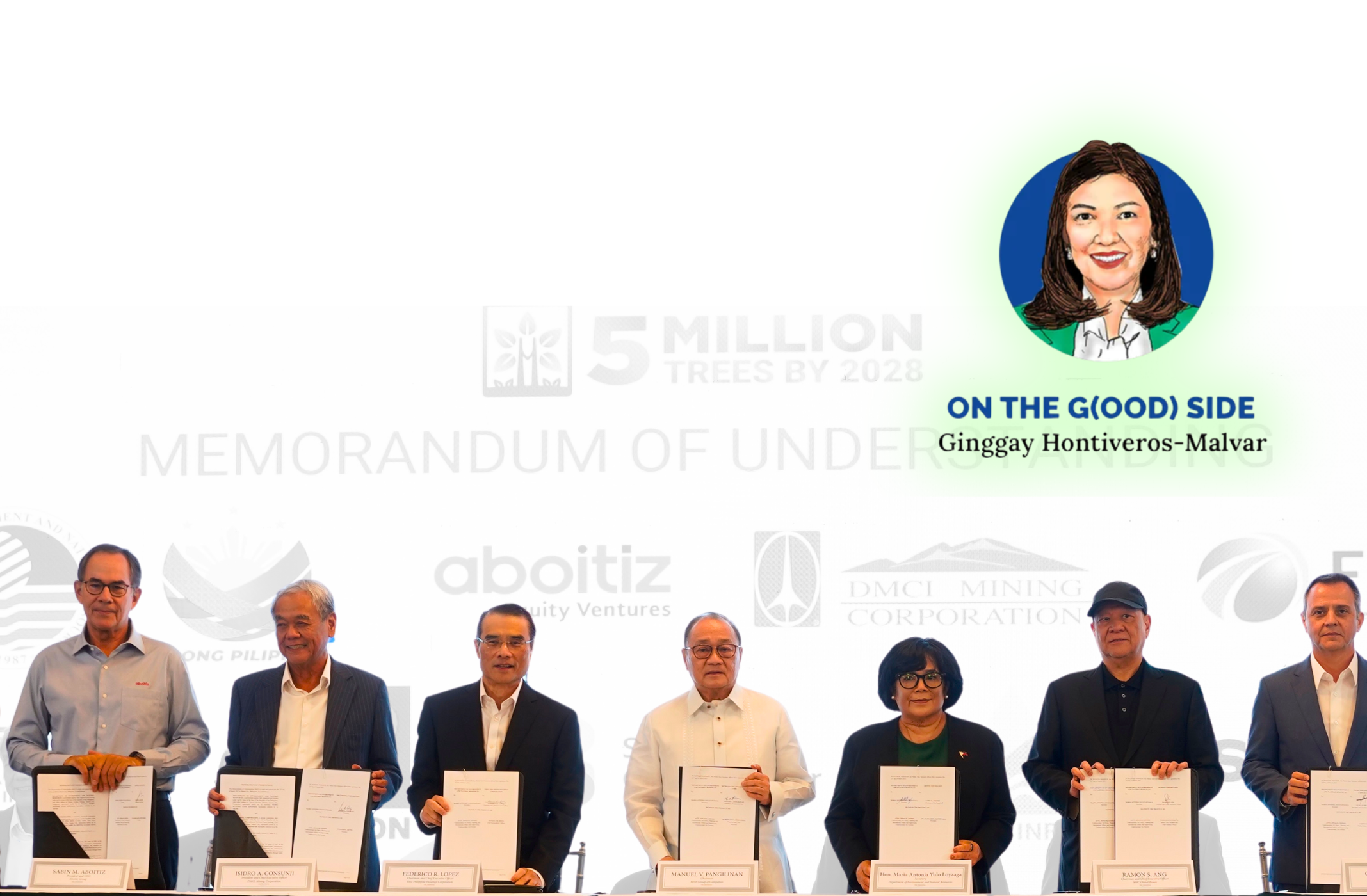By Ginggay Hontiveros-Malvar, Chief Reputation and Sustainability Officer, Aboitiz Group and President, Aboitiz Foundation
This article originally appeared on the author’s Tribune.net column ‘On the G(ood) Side’.
April is Earth Month, a time for reflection and renewed commitment to the only home we’ve ever known. Today, the planet is running a fever. Our forests are shrinking, biodiversity is threatened and communities are increasingly vulnerable to climate-related disasters. The science is undeniable: trees are one of the most powerful tools we have to reverse the tide of climate change, restore ecological balance, and safeguard the future of our people.
Trees do more than make landscapes beautiful. They absorb carbon dioxide, stabilize soil, regulate water cycles and serve as natural habitats for countless species. Their benefits are especially critical for a nation like the Philippines, an archipelago frequently visited by typhoons, plagued by deforestation and ranked among the most vulnerable countries to climate change. Reforestation is not a choice, it is necessary for our survival.
That’s why I am incredibly proud to share that the Aboitiz Group, through Aboitiz Foundation, has formalized a transformative partnership with the Department of Environment and Natural Resources (DENR) and other like-minded private sector partners. Initially launched as a commitment to plant five million trees by 2028, the Forests for Life initiative has now doubled its ambition: 10 million trees in just three years. This bold move underscores the urgent need for collective action—and our shared belief that change is only possible when all sectors of society work together.
At Aboitiz, sustainability is not a tagline; it is embedded in our DNA. Through our A-Park program, we planted 12 million trees in just four years. We are now leveraging this experience to contribute at least five million trees under the Forests for Life initiative, focusing efforts in Central Cebu through our green Carbon Project. This region is not just ecologically vital—it is also the only water source for the province, making our work here crucial for both the environment and the communities who depend on it.

Private sector participation adds tremendous value to this national effort. Companies bring not only financial resources but also management expertise, innovation and data-driven systems that can optimize tree survival rates and improve monitoring. We also have the capacity to integrate reforestation into broader sustainability strategies, including carbon offsetting, watershed rehabilitation and inclusive community development.
Equally important, businesses can scale impact through partnerships with civil society and local communities. Our networks help mobilize volunteers, raise awareness, and align efforts with corporate social responsibility programs. By bridging gaps in public sector capacity, the private sector becomes a force multiplier—amplifying the reach, efficiency and effectiveness of government-led initiatives like Forests for Life.
But tree growing is just the beginning. What sets this initiative apart is our commitment to nurturing what we plant. We’re working hand-in-hand with communities, indigenous peoples, local governments and even law enforcement to ensure these trees survive and thrive. This initiative also builds on our long-standing partnership with DENR, from protecting the Verde Island Passage—one of the world’s most important marine ecosystems—to conserving marine turtle habitats.
In the end, our greatest impact will not be what we build, but what we grow. Each seed sown today represents a promise to future generations: that we chose to act, to care, and to heal. In time, these trees will stand as living testaments to a nation that valued resilience, embraced responsibility and dared to hope.


